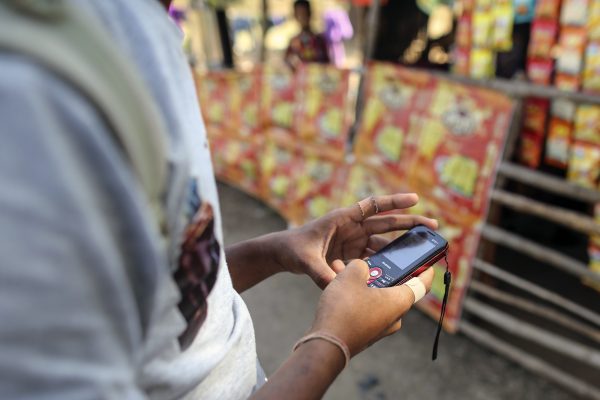
Lucknow/Chitrakoot: Eleven-year-old Reena Devi aspires to become a policewoman one day. The young girl is a resident of Khopa village, about 15 kilometres from the district headquarters of Chitrakoot district.
Reena was struck by an unforeseen tragedy when her school was closed due to the COVID-19 pandemic. She is from an economically disadvantaged background and was unable to resume studies due to the unavailability of a smartphone.
“On one hand, the teachers at the government school do not teach the way they should. And now, these online classes are a joke on people like us who cannot afford a smartphone and an internet connection,” she said.
“There is only one smartphone in my house. It is used by my elder brother who refrains from giving his phone to us. Charging the phone is also an issue in our village since the electricity supply is far from constant. As a result, I am totally dependent on my friends who have smartphones at home,” she added.
Digital Divide
Vipul and Sipul are twin brothers, both of whom study in Class 8 in a Lucknow school. Two days after the lockdown was announced, they left for their village in Chitrakoot district. The brothers were not given any homework by the school but as soon as the lockdown was extended, their father received a message the from school about online education.
Vinod Kumar, the boys’ father, who works as a driver for an NHAI (National Highways Authority of India) contractor in Lucknow, was content that their education would not suffer. Little did he know that a single smartphone at home would create a lot of problems going forward.
“My wife uses a black and white phone, so I had to get my kids a new smartphone and a new cellular connection with a good internet package. This was an extra expense aside from school fees, admission fees and the tuition fee that I had paid in the month of March. I was okay with it as I thought my kids would study,” Vinod said.
However, the way the situation has played out, Vinod said that online education was creating a “divide because my kids are in same class but in different sections. As a result, their class timings are different and they both want the mobile at same time, which is now a problem for us. If I go to buy another smartphone then I will have to borrow at least Rs 10,000 from someone. The new mobile connection already costs me an additional Rs 500 per month for data usage,” he added. He said that if this goes on for a few more days, he will lose all his savings.
Suresh Pal, a student of Class 11 in Siya Singh Inter College has a smartphone, but not the money to get a data pack to study. “I am from a poor family; my parents are daily-wagers. Earlier, I used to find a daily-wage job and get my mobile phone recharged. However, since the lockdown was imposed, I have not been able to find any work. If we get some work then the money is used for food because that is a priority and not the internet,” he said.
“One can afford online classes only when he has the money to buy a smartphone and get a data pack. The prospect looks good for people who are from well-to-do families; not for people like us who depend on daily labour to earn a livelihood. There are rifts happening in families due to the demand for a smartphone by children,” said Lavkesh Pal, Suresh’s father.
Naresh Paras, an Agra-based child rights activist said that digital education has more demerits than merits.
“I know of a case where the father had to sell his bicycle to get a new mobile phone. Even after selling his only means of transport, he had to borrow money from a local moneylender. People are starving in this pandemic and need food first. This additional expense of internet packs and smartphones is adding to their woes,” Paras said.
He added that instead of internet-based education, schools could have taken the help of community volunteers. Samina Bano, a Lucknow-based right to education activist said that at a time when surviving is the priority for some, children can go without education for some time.
“There is a very low penetration of smartphones with internet access among the economically weaker sections of the society in India, at about eight percent. People are cash strapped and most of the content is available in English only. Aside from these flaws, mobiles have a detrimental impact on health, leading to depression and poor eye-sight. It would have been better if there was a TV or radio programme for educating the kids, but unfortunately, due to this unprecedented situation, nothing much could have been done. The problem is greater in small schools as they do not have the capacity and capability to go online,” she added.




